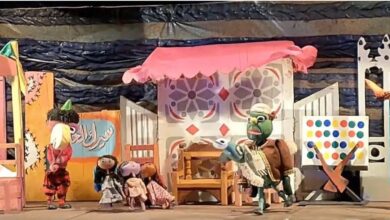To me, Ramadan is quite an intriguing month. From the lanterns and colorful paper decorations dangling from balconies, to the long tables set up on curbs to feed the disadvantaged, this sense of joy and festivity has always lasted from crescent to crescent.
Yet, during the past 20 years, an emphasis on appearances has slowly begun to dominate, at times transforming the Ramadan crescent into a frown, at times a smile, but mostly two brackets, between which lies a blank space where most people’s attitudes undergo temporary and quite intriguing changes.
Female dress codes are a typical Ramadan variable with direct connotations to Arabian Gulf religious values, which Egyptians brought home with them when they came back to settle in their homeland in the late nineties. The general public became more obsessed with appearances and much more conservative. During Ramadan, sleeveless shirts are replaced with long, baggy sleeves and makeup is highly frowned upon. Wearing perfume is also out of the question during the holy month.
Fasting rules are changing. Last Ramadan, the Egyptian police in Aswan organized a campaign to arrest people for eating in public during day. This is unprecedented in Egyptian society and really challenges the notion of Islamic forgiveness and tolerance.
Suddenly, spirituality and piety need to have tangible proof and be approved of by fellow beings, instead of it being a highly exceptional and extremely personal spiritual journey between one and his or her God. When I look at black-and-white photos of the fifties and sixties in Egypt, I can’t help but wonder, Weren’t our parents religious, too? What happened?
Instead of fasting from any misconduct, Ramadan has become mainly about fasting from food and beverages. By default, the productivity level in the workplace has become low.
And so the month of compassion slowly slipped into a month of human vanity.
But, amidst the dominance of appearances, a few genuine Ramadan values still float.
Family gatherings and charity work are still earmarks of the month of giving. You taste the joy of sharing.
You still enjoy waiting for, and sometimes actually hearing, the gun of Ramadan announcing the time to break one’s fast. There are Grandma’s signature dishes, and the warmth of familiar faces finally making room in their calendar to meet. You are cushioned by loved ones.
Streets are flooded with lights accompanying colorful lanterns twinkling all night above people who are up watching television programs, involved in endless Ramadan cultural events, praying, or even preparing food for the next day. You enjoy the grand sense of occasion.
You notice the way your not-so-friendly neighbors greet you and offer to lend you some fresh yogurt they just bought for sohour, and how the sound of the mesaharati knocking on his small drum in the middle of the night brings back endless childhood memories. Memories like when the neighborhood children were responsible for the street’s handmade decoration, and you’d spend countless hours cutting and pasting.
You learn the capacity to forgive, forget, and tolerate each other and enjoy the air of serenity that seals all 30 days.
Despite all materialistic obstacles, Ramadan’s true spirit lingers on. If you take time out from watching television and listen hard enough, you will still feel the authenticity and enjoy the mystic month.




